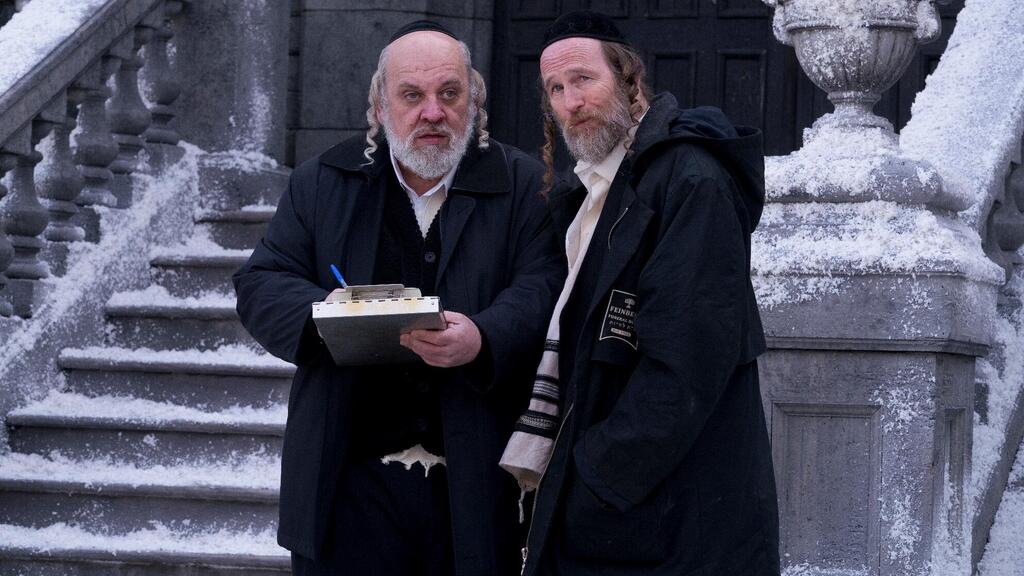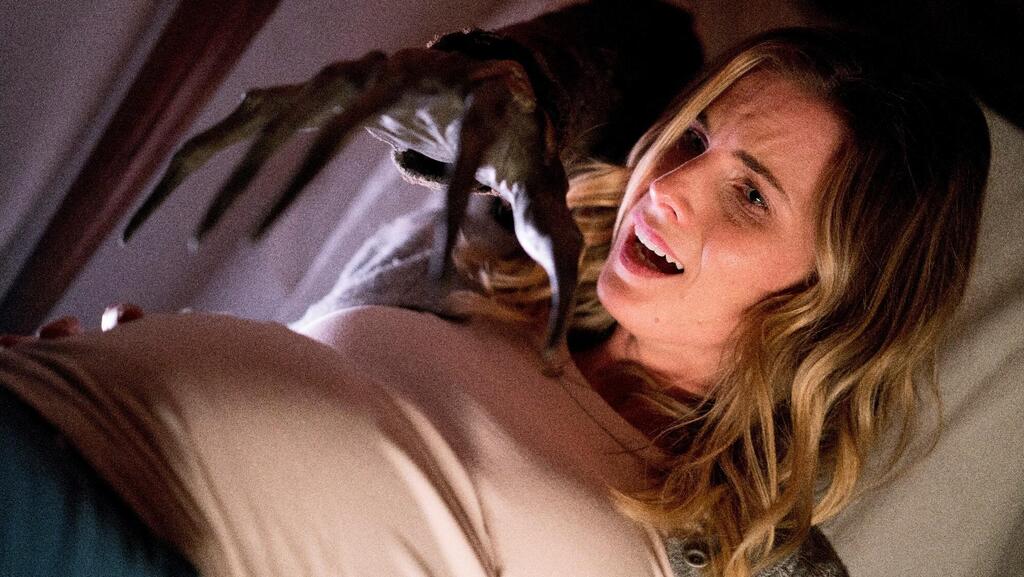UK-born director Oliver Park’s newest horror film “The Offering” is frightening not because of the Jewish demons lurking around searching for prey, but due to its hinted antisemitism.
The plot revolves around a Jewish man who left his ultra-Orthodox religious family in Brooklyn in order to marry a Christian woman, who’s now pregnant. The two arrive back at his family home where his father runs a morgue.
This is where the antisemitic tones begin to appear. First, the son only visited his religious father plotting to get him to sign an open check for him (a known stereotype of Jewish people only having an interest in money.)
Later, one of the other Jewish characters in the film points out to the protagonist that they’ll soon surely convince his Christian wife to convert to Judaism. Once the demons also depicted as Jewish, begin to appear, they attack the wife and her fetus, which isn’t considered Jewish according to religious laws.
An interesting phenomenon occurs on the fringes of American cinema with horror films based on the Orthodox Jewish religious community in New York, including 2019’s The Vigil, in which a Jewish man who turned secular, is forced to face a Jewish demon named Mazzik (harmful) while keeping watch over a dead body.
This depiction of Jewish demons is also in The Offering, and the two films fail to draw new ideas or present a quality horror experience for viewers.
Park’s first feature-length film suffers from attempting to present horror using cheap computer graphics and lazy sudden scares, rather than delving deeper into the mythology and ideas presented in Judaism. A better rendition can be found in the Cohen Brothers’ 2009 film A Serious Man in which a demon arrives at the doorstep of a Jewish family in the 19th century.
A sudden resurgence of such films in Indian cinema in the form of 2021’s Dybbuk: The Curse Is Real, could point to the emergence of a new film genre that could be named Jewish Horror.
Parks and his directors could’ve instead presented the conflicts of Jewish religion and secular life, Jews and Christians, the hardships in closed communities, and the intricacies of Jewish kabbalistic texts, but the film only presents those ideas briefly as a backdrop.
The film’s horror cliches eventually lead to the detrimentation of the Christian woman, as if mocking her for daring to attempt to enter the Jewish world that’s unfitting for her, even when it seemed like it accepted her at first.



